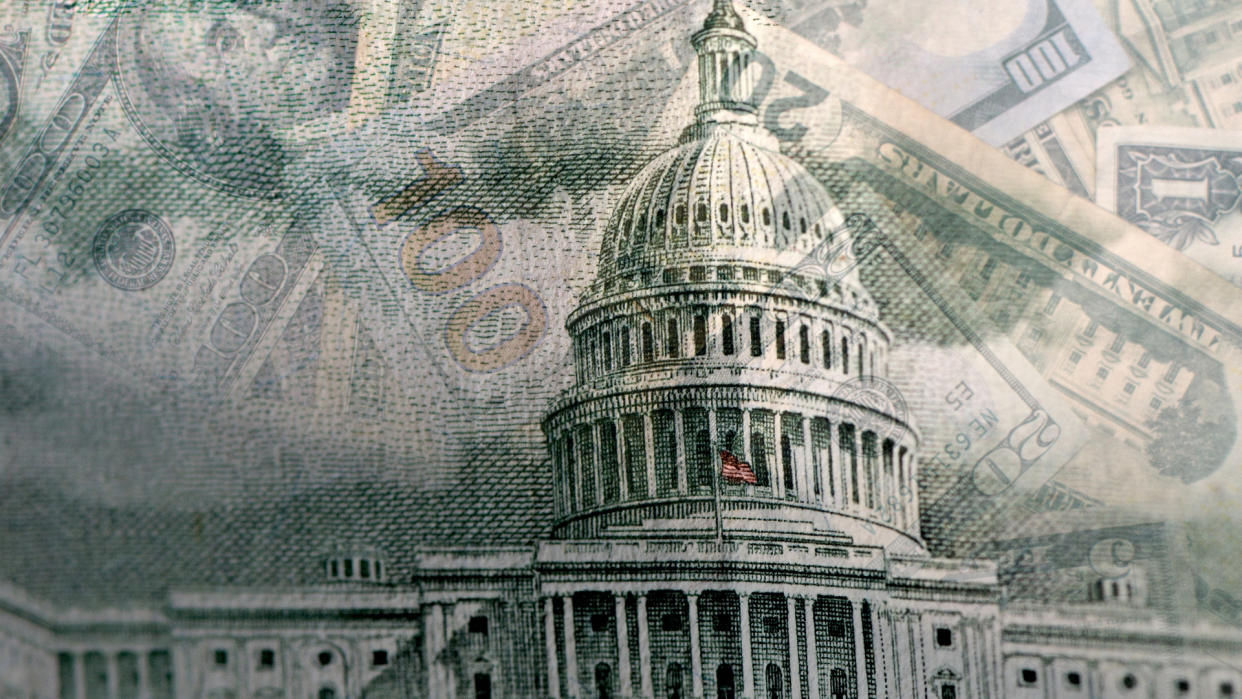The ‘Loathsome’ Option the Fed Has If The Debt Ceiling Isn’t Raised, According to Powell

The U.S. government has only three days left to make a final decision on increasing the federal debt ceiling — and their alternative options could bring serious financial strain.
See: Fourth Stimulus Checks Are Coming From These States — Is Yours on the List?
Find: Expect ‘Cataclysmic’ Impact on Social Security, Child Tax Credit If Debt Ceiling Isn’t Raised
On Sept. 30, the government will have to vote on a new budget for the upcoming year and whether or not to increase the amount of debt that is legal for the federal government to legally hold. After a year of unprecedented spending due to the coronavirus pandemic and stimulus bill, the government has currently taken out more money than it can pay back. Raising the debt ceiling, or the number of bonds the Treasury can issue, will allow the receipts from last year’s borrowing to be paid back.
Should that not happen, the U.S. will default on its loans.
Alternative options include the Fed buying Treasury securities in default on the open market and selling Treasurys owned by the Fed to counteract a potential financial crash, the Wall Street Journal reports.
In 2011, when the country was once again days away from defaulting, then-Fed Gov. Jerome Powell contemplated similar measures to avert a crisis, which a transcript shows he called the choice to fund the government directly “loathsome,” Reuters reports.
Despite this, he was among those who said those measures need to be contemplated in order to avoid market catastrophe. That being said, a move like this would essentially force the Fed to directly finance the government.
In a press conference last week, the now-Fed Chair said that although the logistics of the Fed buying government securities check out, the central bank cannot protect the U.S. economy if the vote to raise the debt ceiling isn’t passed.
“The failure to do that is something that could result in severe damage to the economy and to financial markets and it’s just not something we should contemplate,” he said.
“No one should assume the Fed or anyone else can fully protect the markets or the economy in the event of a failure.”
The government’s current debt limit was $28.4 trillion at the beginning of August following a two-year suspension. This forced the Treasury Department to breach the debt ceiling and has since been running low on cash.
See: 8.5 Million Tax Refunds Have Yet to Be Sent – What To Do If You Haven’t Received Yours
Find: Didn’t Get Your Child Tax Credit? Here’s How to Track It Down
Treasury Chair Janet Yellen has been warning that the department will run out of money in October should the ceiling not be raised.
“Once all available measures and cash on hand are fully exhausted, the United States of America would be unable to meet its obligations for the first time in our history,” Yellen stressed earlier this month.
More From GOBankingRates
Social Security Benefits Might Get Cut Early -- What Does It Mean for You?
When Social Security Runs Out: What the Program Will Look Like in 2035
This article originally appeared on GOBankingRates.com: The ‘Loathsome’ Option the Fed Has If The Debt Ceiling Isn’t Raised, According to Powell

 Yahoo Movies
Yahoo Movies 
